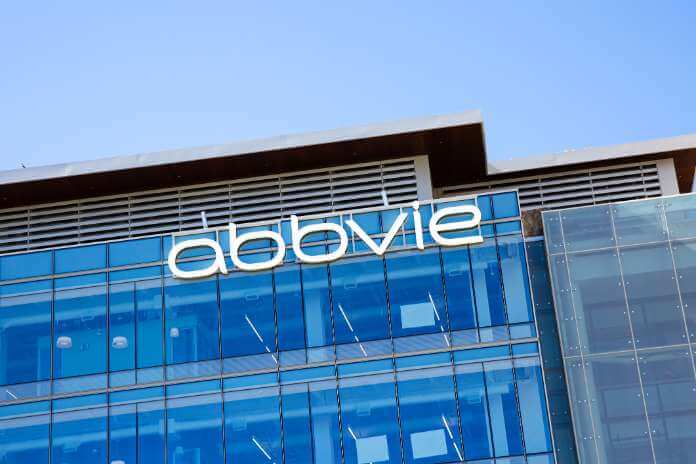The loss of exclusivity for AbbVie’s (NYSE:ABBV) drug Humira is a big problem, but I think the markets have punished the company too much regarding its valuation. Analysts and the company’s management believe that the company will grow again by 2025. While investors wait, they get a 4% dividend yield as a reward. I suggest that investors buy Abbvie stock with a 10x P/E ratio, which is a reasonable valuation.
Abbvie Has Strong Profits Since the Spin-off
AbbVie is a global biopharmaceutical company with products in immunology, oncology, neuroscience, eye care, virology, gastroenterology, and aesthetics.
Since it split off from Abbot Laboratories (NYSE:ABT) in 2013, AbbVie has had some of the best revenue and earnings growth in the pharmaceutical industry, with revenue growing at a 14.7% CAGR and adjusted EPS growing at a 19.0% CAGR.
Abbvie stock has done well, as the stock’s return of 330% from its spin-out price of $35 is more than the S&P’s return of 167%.
Also, ABBV has paid out dividends totaling more than $32 and is now yielding 4%.
Based on the latest guidance for FY 2022 (adjusted EPS guidance range of $13.78 to $13.98), the forward dividend rate of $1.41 per quarter seems to be well covered (41% adjusted EPS payout ratio).
Looking Past the Short-term Slowdown in Growth
The biggest problem for AbbVie is that its best-selling drug, Humira, will soon no longer be the only one on the market. Biosimilars are set to hit the market in 2023. Humira, a drug used to treat rheumatoid arthritis, Crohn’s disease, and other autoimmune diseases, is one of the most successful drugs ever, with sales of $19.2 billion in 2019 and a regular spot at the top of lists of best-selling drugs. Since it came out in 2002, Humira has brought AbbVie nearly $200 billion in sales.
As a result of this negative factor, consensus revenue estimates say that AbbVie’s sales will drop by 6% in 2023 and stay flat in 2024. This is because AbbVie will no longer have exclusive rights to sell Humira.
Skyrizi and Rinvoq, which are used to treat psoriasis and severe rheumatoid arthritis, are two drugs in AbbVie’s pipeline that could help the company grow. AbbVie thinks these two treatments can bring in $15 billion in sales by 2025, which would more than makeup for Humira’s LOE.
The 2019 purchase of Allergan, which makes Botox and other drugs, will also help compensate for lost sales. Allergan made $15.8 billion in sales in 2018, its last fiscal year before the merger.
AbbVie Won’t Just Give Up on Humira
AbbVie has talked with nine companies about making biosimilars of Humira, which will come out in 2023. However, the company still has essential manufacturing patents that don’t expire until 2034. Biosimilars are not the same as reference drugs as “small molecule” generics. Biologics are drugs with “large molecules” that can be sensitive to changes in how they are made. AbbVie has more than 100 patents on formulations and ways to make Humira, in addition to the core patent. This could slow down the production and use of biosimilars.
Also, biosimilar versions of Humira have been available in Europe since 2018, but Humira’s sales in other countries are still doing well.
AbbVie has also been using a patient support programme called Humira Complete. This programme helps people learn how to give themselves injections, helps them get insurance coverage, and gives them nurse advocates. AbbVie hopes that Humira Complete will show patients and insurance companies that the higher price of Humira is worth it compared to biosimilars.
Abbvie Stock Valuation Looks Good
AbbVie stock price remains rock-bottom because Humira will soon no longer be an exclusive drug. Abbvie is trading at 10.1x non-GAAP Forward P/E, lower than the average of 18.3x for the sector and 17.0x for the S&P 500.
Even though Humira’s LOE is a critical risk, the discount seems too big. Most analysts expect earnings to go down in 2023 and 2024, but only by 14.2% and 1.4%, respectively, so a P/E multiple discounts of 8 seems too much.
Investors interested in AbbVie might find Pfizer (NYSE:PFE) an interesting case study. In 2011, Pfizer’s best-selling drug Lipitor also lost its right to be the only one on the market. Lipitor is a statin drug that is one of the best-selling drugs of all time. It is used to prevent heart attacks. At one point, Lipitor was responsible for a quarter of Pfizer’s sales, 14% of Pfizer’s sales in 2011, the year it lost its exclusivity.
Even though Pfizer’s sales dropped by 15.4% in the two years after 2011, when Lipitor and several other drugs lost their exclusivity, the company was still able to increase its pre-tax income from continuing operations, from $11.5 billion in 2011 to $15.7 billion in 2013, by cutting costs to make up for lost sales.
Even after considering the effects of other income/deductions and restructuring charges, adj. pre-tax income was about the same in 2013 and 2011 ($16.4 billion vs. $16.8 billion), despite sales falling by a lot.
Risk
The most significant risk for AbbVie is that the Humira business goes down faster than expected. Even though management and analysts don’t seem too worried about the risks, it’s still something to keep an eye on.
Also, AbbVie is being sued by some government officials and insurance companies for doing things that hurt competition with Humira. Even though AbbVie won the latest round of the lawsuit, investors shouldn’t be surprised if there are more lawsuits in the future, given the amount of money at stake.
Buy Abbvie Stock When Price Goes Down
In conclusion, the loss of exclusivity for AbbVie’s Humira drug is a big problem, but I think the markets have put too much weight on it when valuing the company. Analysts and the company’s management believe that the company will grow again by 2025. While investors wait, they get a 4% dividend yield as a reward. I would tell investors to buy more shares when the price goes down and to trust the company’s management, which has given total returns of 400% or more over the past ten years.
Featured Image – Megapixl © Vzphotos















